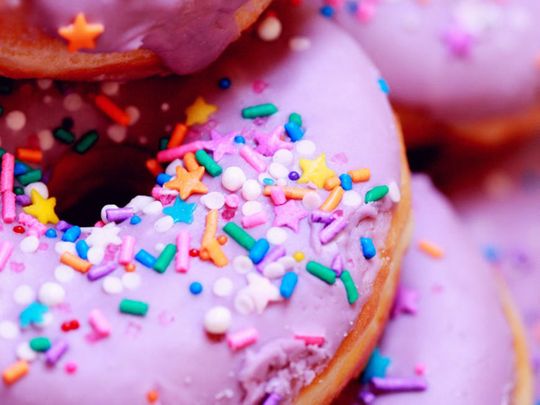
Dubai: These days with life being flipped basically upside down, many of us turn to food for comfort. For some people, it’s the only thing that can make you feel something during a time like this. Our senses are pretty dulled at the moment. So eating gives us some sense of control.
Emotional eating, according to the Mayo clinic, is a form of eating as a way to suppress or soothe negative emotions, such as stress, anger, fear, boredom, sadness and loneliness. Basically all the things you could feel while in self-isolation or quarantine.
“COVID-19 has got us all out of our comfort zone,” Farah Hillou, a licensed nutritionist, registered dietician and a certified practitioner of functional nutrition told Gulf News. “Whether it is fear of the unknown, concern about loved ones, loneliness, uncertainty about jobs and finances, and disrupted routines, our stress levels are undoubtedly higher. This stress combined with more time spent at home has found us paying more visits to our kitchen, eating more throughout the day, and resorting to indulging in “comfort food”.
So why do we crave foods when we are stressed?
In addition to the psychological aspect of emotional eating, there is also a physiological and biological reason for this as well.
Under normal circumstances, when something crazy happens, our body reacts in a fight or flight mode
“In an suddenly stressful situation, the hypothalamic-pituitary-adrenal (HPA) axis is stimulated, leading to the production of cortisol, also known as the stress hormone. Stress also triggers the release of adrenaline.
So our body goes into “fight or flight” mode. Our nervous system is on high alert. This normal, adaptive mechanism allows our body to respond to threats by redirecting the blood flow to the brain, heart and muscles instead of the digestive system.
As a result, appetite and food intake are reduced. It’s why when you’re in a stressful situation, you cant think of food, you just think of the situation at hand.
Cortisol can also play a role in regulating our insulin and hormones like leptin and ghrelin, which inhibit or stimulate our appetite. So then the HPA axis activation stimulates the rewards system which produces dopamine.”
But COVID-19 is no longer a “sudden” situation
Right now however, the stress is more repeated, chronic and uncontrolled. As a result, the HPA axis fails to function properly.
“We are now in a constant state of a “fight or flight” mode rather than the parasympathetic “rest and digest” mode. Inflammation is higher, our immunity is reduced, digestive functions are compromised, and detoxification is affected. Our cortisol levels are all over the place, peaking when they are not supposed to.
In turn, this impairs the release of leptin and ghrelin that promotes insulin resistance. So our body is encouraging us to increase our food intake with particular preference for foods high in sugar and fat.
High in fat diets increase our sensitivity to dopamine, which in turn leads to more cravings and food intake, hence a vicious cycle.
So what can we do to avoid emotional eating?
1. Focus on the actual reason(s) why we resort to emotional eating, and then finding alternative ways to cope. Proven methods that can help include journaling and meditation. Alternatively, resort to a favorite in-house hobby (or dance it out?)
2. Apply the “out of sight, out of mind” method. If we have comfort food within our reach, we are more likely to dive right in. Avoid purchasing high fat and high sugar foods like chips, cakes, cookies, biscuits, and ice-cream. Don’t grocery shop while you are hungry.
3. Craving a brownie or a cookie? There are lots of alternative healthier recipes out there that are sure to satisfy that craving with less toxic ingredients. Make it at home with oats and dark chocolate instead.
4. Ditch the guilt. Remember, we can all get back on track the following meal or day. Go easy on yourself. It’s a pandemic.
5. Focus on sleeping better. We’ve all heard that before, but poor sleep causes imbalances in the HPA axis, reduces insulin resistance, affects cortisol levels, and leads to food cravings. Aim for 7-9 hours.
6. Seek online professional help for guidance and support when feeling stuck.







